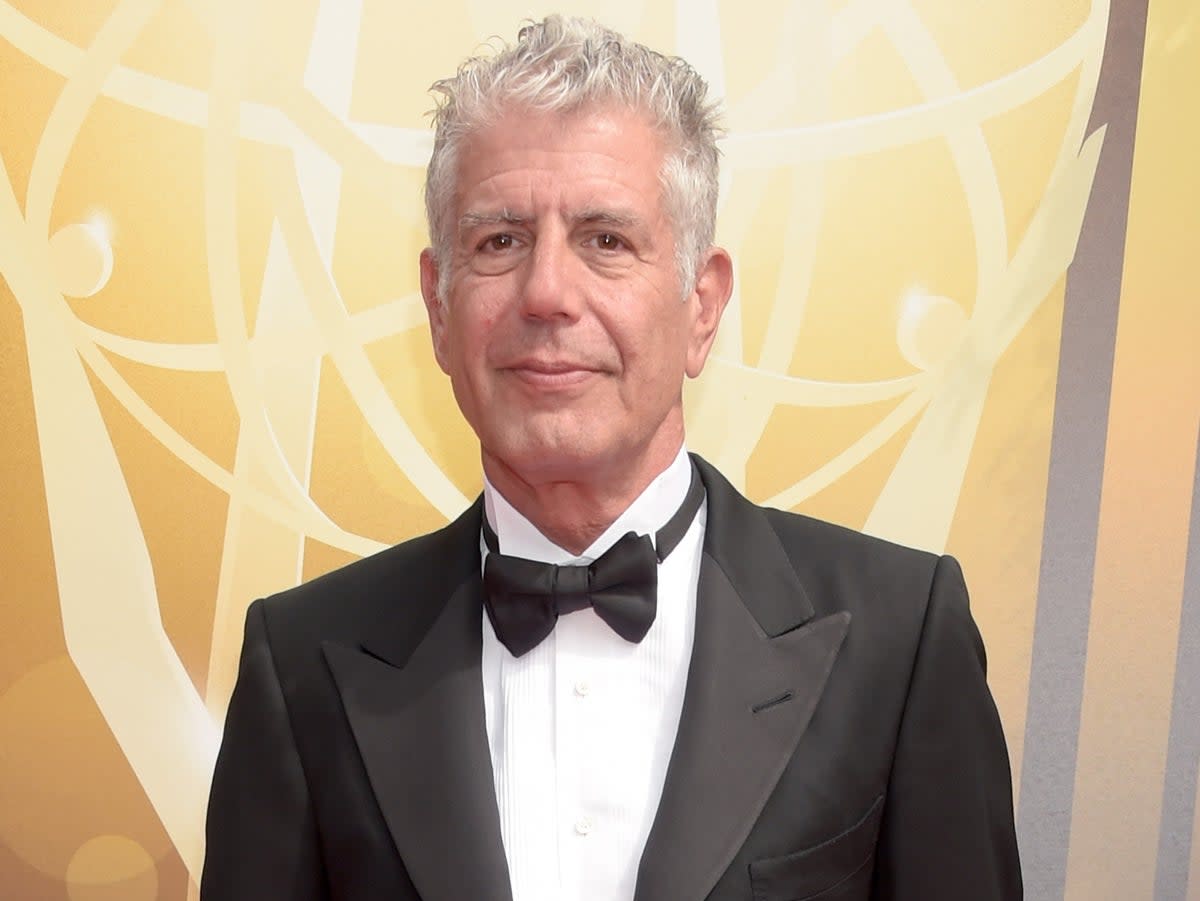Resurfaced clip of Anthony Bourdain sparks debate about treatment of ‘maids’ in Singapore

A resurfaced clip of Anthony Bourdain on a trip to Singapore has sparked a debate on social media about the treatment of foreign domestic workers.
The footage, which has gone viral on Twitter, was first released back in 2018 in an episode of the late celebrity chef’s food and travel show, Anthony Bourdain: Parts Unknown. In the clip, Bourdain could be seen eating with three locals in Singapore and talking to them about how many people in the country have maids.
“Everybody’s got a maid, looking after their child at home,” one woman said. “So maids are kind of like the opiate of the masses.”
In response, Bourdain said that if someone has a maid, it then “frees them up to join the workforce”, which the woman agreed with. However, she also noted the downsides of having a maid, as she claimed that her husband didn’t “know how to serve himself water”.
As she went on to explain that her husband also couldn’t do his own laundry, one of the men in the group asked Bourdain when the last time was that he did laundry. In response, the actor expressed how much he liked doing the chore.
“I enjoy throwing my clothes into the washer and removing them to the dryer,” Bourdain said. “It’s a process that makes you feel very satisfied with yourself.”
He went on to make a joke about the three people being too reliant on domestic service workers.
“It’s like bourgeois, man. You’re living off the labour of a repressed underclass,” he joked, prompting some laughter from the people at the table.
As of 27 September, the clip has more than 4.5 million views, with Twitter users in the comments calling Bourdain and his peers out for their privilege. Viewers also claimed that they were speaking about domestic service workers in a rude manner.
No one can call people out right to their faces quite like Anthony Bourdain. pic.twitter.com/q7uDHxHiNC
— Lauren McKenzie (@TheMcKenziest) September 24, 2022
“They’re not self aware at all. Having a maid is a class status in and of itself. They were humble-bragging,” one wrote.
“Having a maid is a sign of middle-upper class wealth and privileged kids and aunties would love nothing better than to remind the poors that their ‘maid’ can do this, or that, or said this, or that. To, you know, brag,” a second person wrote.
They’re not self aware at all. Having a maid is a class status in and of itself. They were humble-bragging.
— 𝕊𝕜𝕖𝕡𝕥𝕚𝕔𝕒𝕥 | 🇲🇾 | ☆☆☆☆☆☆ (@pragmalaya) September 25, 2022
One person also questioned if “having a maid is really that bad if you pay them well,” while another agreed with Bourdain, noting that they’re from Singapore and that they “don’t have any family members who work as househelp”.
In one response, a Twitter user shared screenshots from a Singapore-based aid agency’s, Best Housekeeper, website, which describes domestic service workers based on their race.
“Government-accredited placement agency invites you to select a race of servants!” the tweet reads. “Look out for ‘prideful’ Filipinos. Consider the ‘innate characteristics’ of the ‘submissive’ Indonesians, or the Mizoram who have ‘more endurance than the other races.’”
Along with describing helpers’ personalities, the site also lists the different rates worked can be paid based on their nationalities, such as $550-$700 for Indonesians and $450-$570 for a maid who is Mizoram, a “race found in Myanmar and India”.
Government-accredited placement agency invites you to select a race of servant! Look out for "prideful" Filipinos. Consider the "innate characteristics" of the "submissive" Indonesians, or the Mizoram who have "more endurance than the other races." ??? pic.twitter.com/ahhgaJJ3au
— Alexander Lee (@post_vermouth) September 25, 2022
In response to the Twitter post, multiple people criticised the agency, one of them writing: “Something tells me these people treat their pets better than actual human beings,” while another wrote: “I cant believe what I’m reading here.”
Recent research has continued to reveal the value of the domestic service industry in Singapore. According to a 2019 report done by Experian, a multinational consumer reporting company, migrant domestic workers (MDW) contributed SGD$11.1 billion in 2018, which is equivalent to 2.4 per cent of Singapore’s GDP.
As explained in the Ministry of Manpower‘s (MOM), a Singapore Government agency website, employer’s guidelines for MDWs, there are different essentials for creating a “positive relationship” between worker and employer. For example, domestic workers are offered rest days, contracts and safety agreements, and guidelines to their salary.
However, as noted by the MOM, domestic workers are not included in The Employment Act, which is Singapore’s main law that regulars hourly, daily, and monthly pay.


